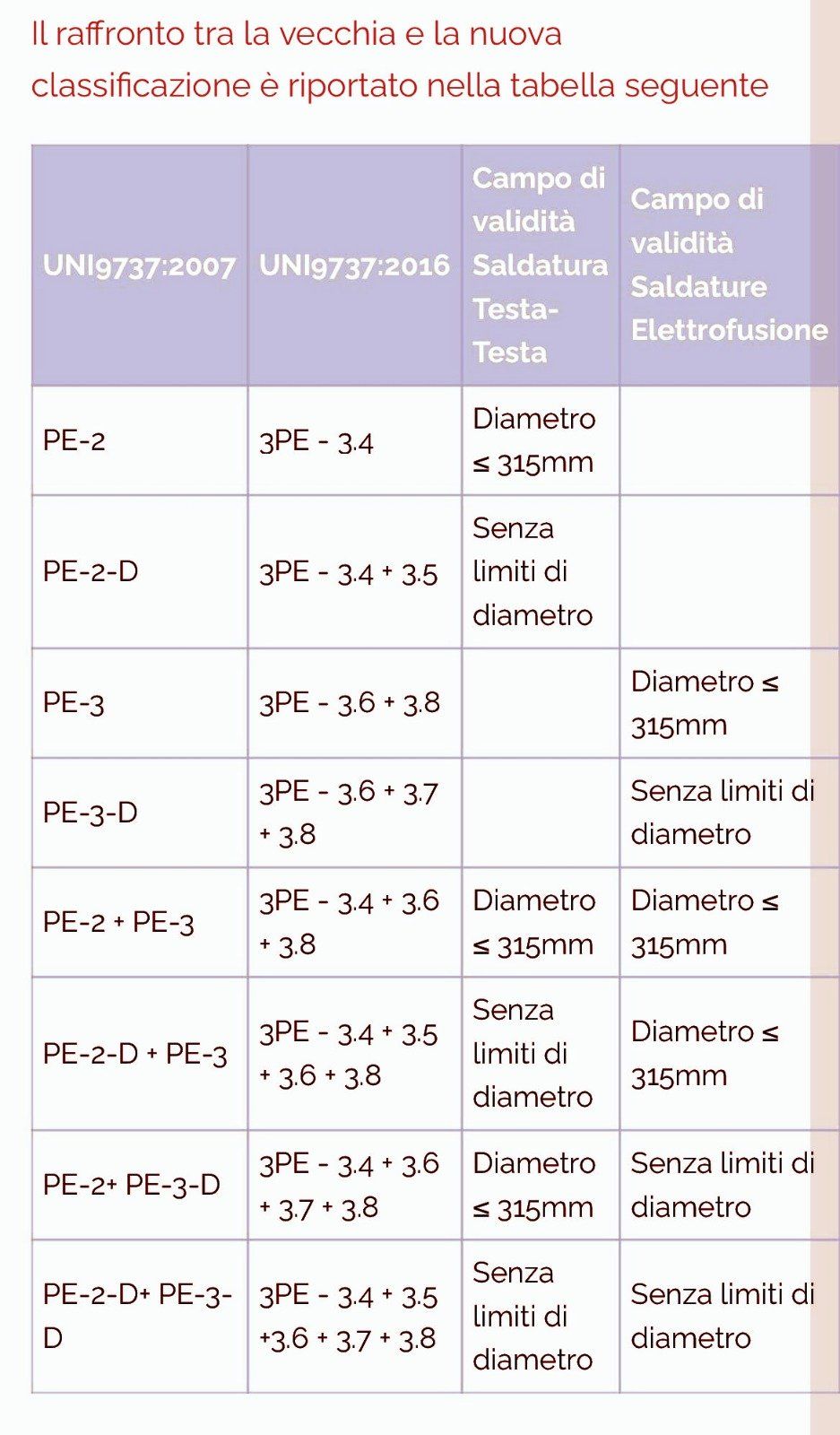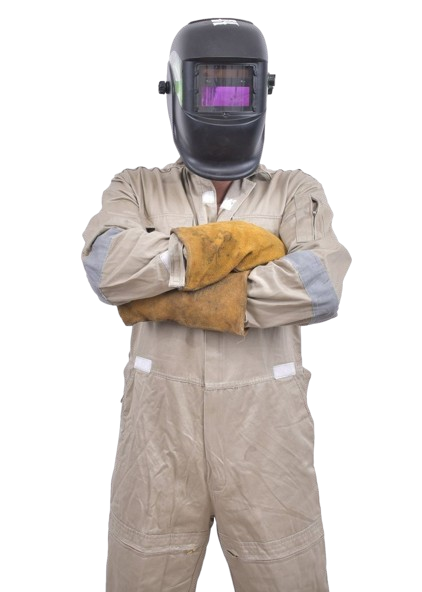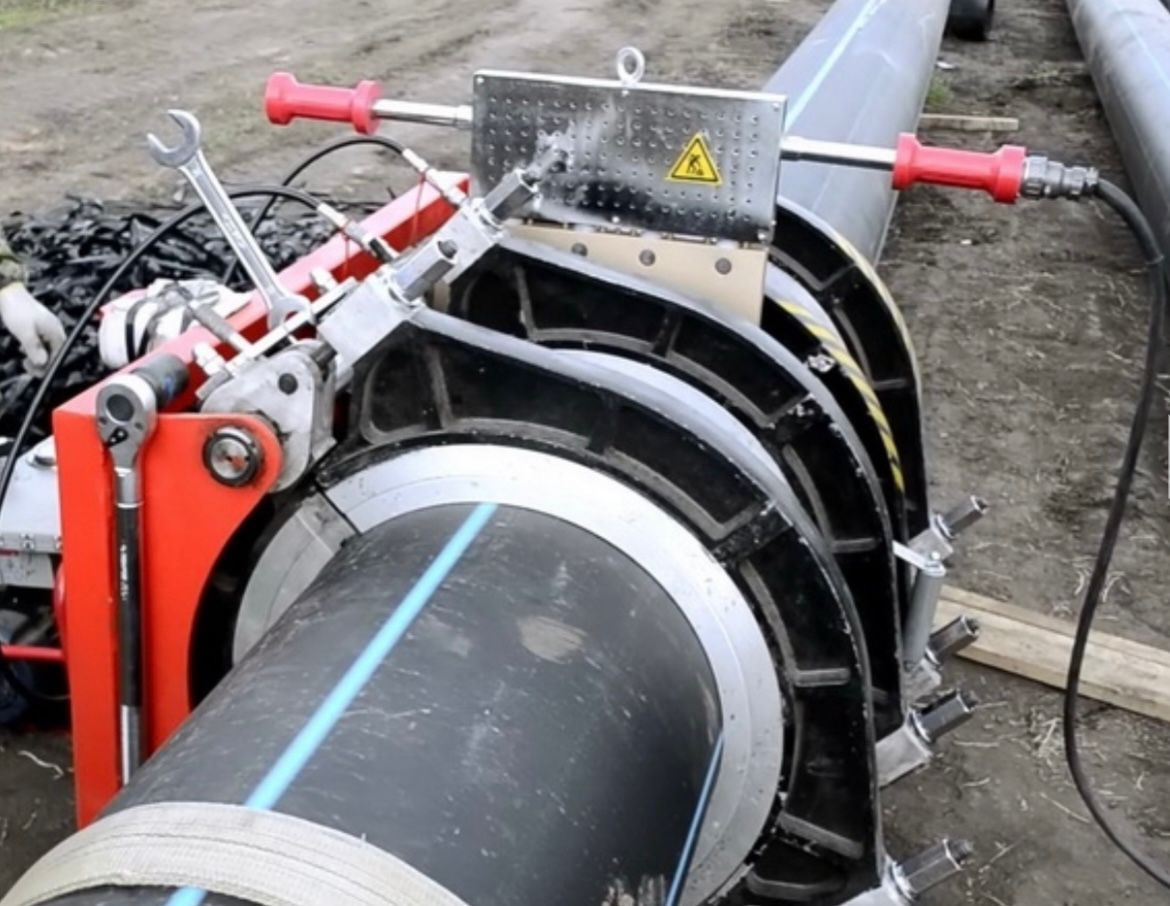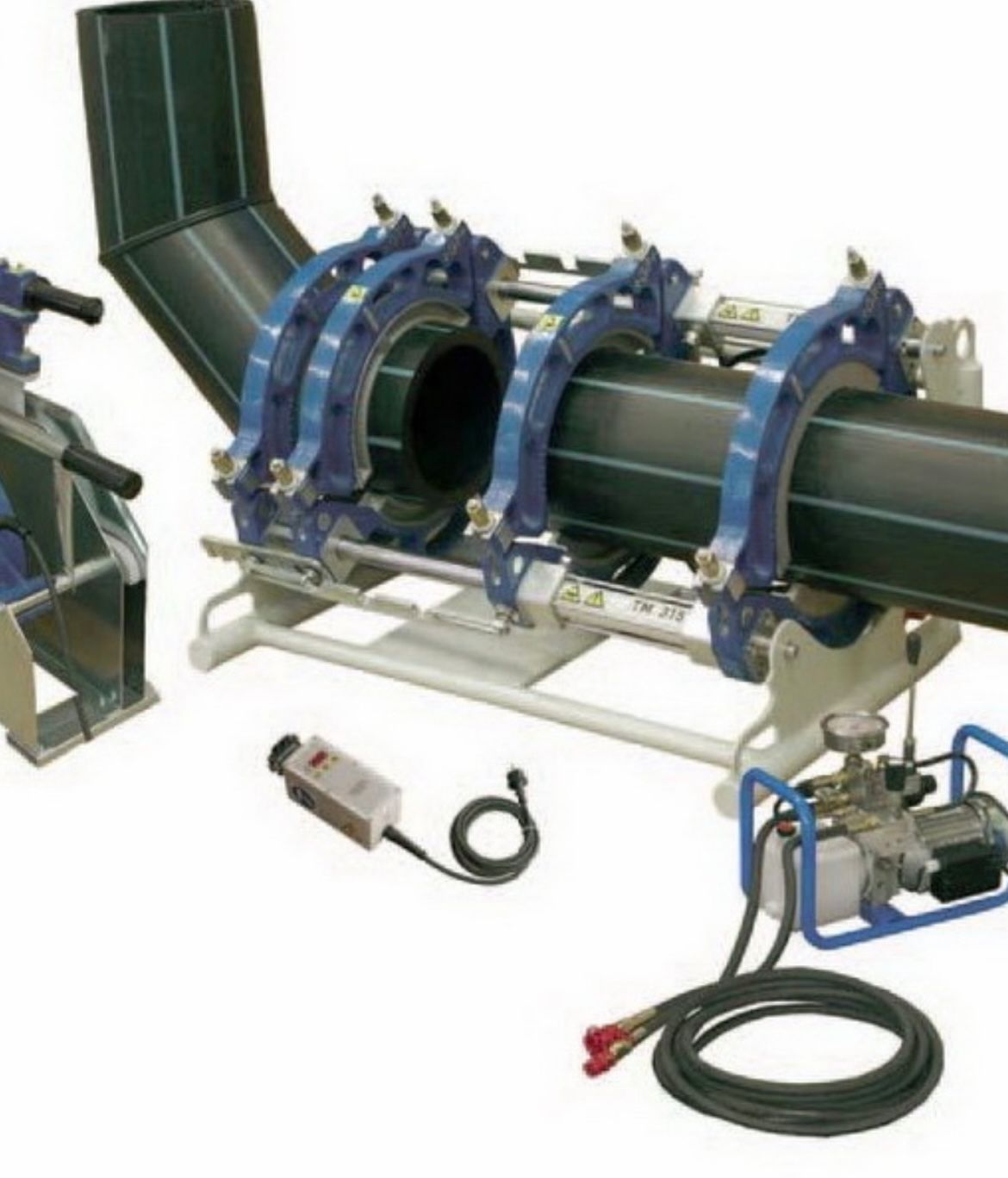WELDING COURSE WITH ISSUE OF CERTIFICATION (LICENSE) ON POLYETHYLENE PIPES AND FITTINGS FOR GAS, WATER AND OTHER PRESSURE FLUIDS ACCORDING TO UNI 9737 STANDARD
The qualification methods and the specific designation of the welder depending on the chosen joining process are defined within the UNI 9737 standard which prescribes the program of educational topics, practical exercises and examination specimens that the welder himself must carry out to obtain the qualification for contact thermal element and electrofusion welding processes for the transport of gas, water and other pressurized fluids. The previous edition of the UNI 9737:2007 standard provided for the division into classes: PE-1, PE-2, PE-3, respectively socket joints, butt joints, and sleeve joints (insertion), while the new standard uses group classification. The first group consists of PVC pipes, fittings and sheets, the second group (2PP) includes all types of polypropylene, while the third group (3PE) includes polyethylene. Each group is then divided into subgroups, 3.4, 3.5, 3.6 ... where the first index reminds us of the material of the pipe or fitting and the second index uniquely identifies the welding process and any limitations.
-
They are obtained like this:
They are obtained like this:
The comparison between the old and the new classification is shown in the following table:

The designation of the qualification is given by the acronym of the sub-group (e.g. 3PE – 3.6), if the qualification covers multiple sub-groups, the designation is given by the acronyms joined by the sum symbol (e.g. 3PE – 3.6 3.7 3.8 ).
To be able to take the qualifying tests, the candidate must:
- Have completed an apprenticeship with a manufacturer of components for polyethylene piping systems covering the welding processes for which the welder requires qualification;
- Possess, in the last four years, at least two years of experience as a plastic welder, this requirement is demonstrated by a declaration made by the employer;
- Have attended a training course at a training center.
TWO LEVELS FOR ADVANCEMENT COURSES
- If the candidate is in possession of a qualification certificate, coinciding with the one for which he intends to take the new qualification exam, he can access an "Entry level 2" course, provided that the certificate is still valid or has expired no more than six months ago. months before the date scheduled for the new qualification test in which the candidate intends to participate.
- If the candidate does not meet the Entry level 2 requirements, he or she is automatically classified as "Entry level 1"
The Certificate is valid for two years, at the end it will be possible to obtain an extension for the following two years by completing the documentation that we will send you. The validity of the certificate will be extended by the Institution for 2 successful years. At the end of 4 years, the Certificate will automatically expire, making it necessary to take a new course with a duration that the respective qualification requires and the consequent technical-practical exam.
PLAN
Theoretical training: characteristics of polyethylene, characteristics of pipes and fittings, contact thermal element welding process (butt) of pipes and fittings according to the applicable technical standards, electrofusion welding process of pipe and fitting joints according to the standards applicable techniques, installation of the pipe.
Training: after the demonstration carried out by the instructor on the different welding methods, the exercise tests will comply with what is indicated in UNI 9737.
Exam: at the end of the theoretical-practical course, a theoretical test will take place (written questionnaire) and a practical test (execution of the tests required by the UNI 9737-2017 standard).
PARTICIPANT REQUIREMENTS
In consideration of the topics covered, the candidate must have a lower secondary school diploma and demonstrate at the end of the training course that he is able to take the tests required by the UNI 9737 standard. Otherwise, the instructor reserves the right not to admit the candidate to the exam.

Do you want more details? Do you want some advice? Isn't there a clear rule?
In the information request form, write what you want to know. You will be contacted and your questions answered.
We will reply to you as soon as possible
Please try again later
SITE
SS 113 km 248,600
90011 Bagheria (PA)
WORKING HOURS
- Mon - Fri
- -
- Sat - Sun
- Closed
















